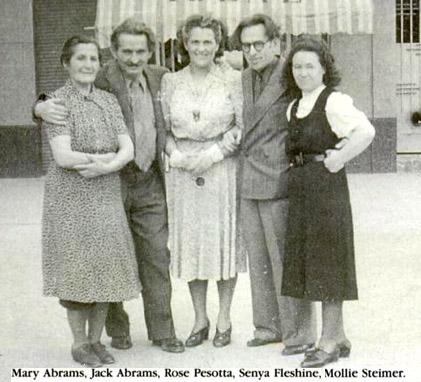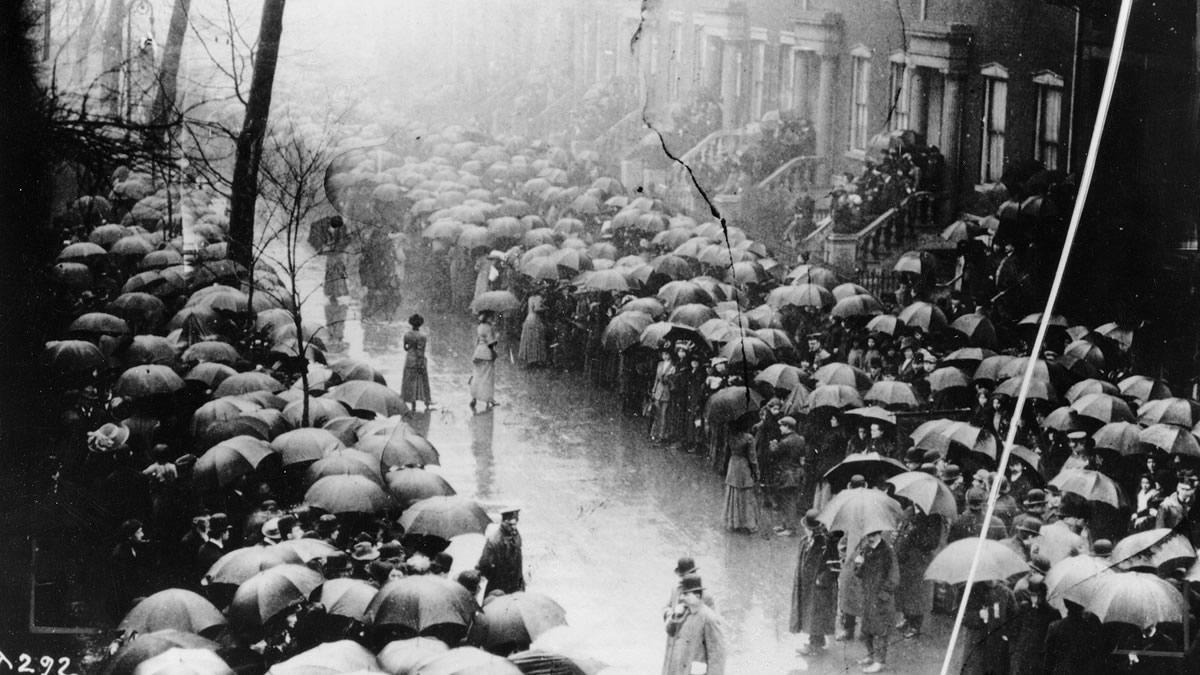From ‘Mother Earth: Monthly Magazine Devoted to Social Science and Literature’, January 1912, New York City, published by Emma Goldman, edited by Alexander Berkman
Legal justice is a Janus head with two faces, the one smiling fawningly upon the rich and influential, the other turned with cruel sneer toward the poor and friendless. This is the true character of justice, and therefore those familiar with it were not surprised at the verdict rendered in the case of Harris & Blank, of the Triangle Shirtwaist Company. The two men were charged with having caused the death of 147 persons, among them 131 young girls and women, who helplessly perished in the fire-trap of the Triangle factory. It was demonstrated during the trial that all safety requirements were entirely ignored by the bosses. The owners of the factory were concerned solely with the question of profits. They had no time to consider the safety of their employees. And the city authorities and factory inspectors drew their comfortable salaries and let the fire-traps remain undisturbed.
Had the laws and regulations of the safety department been taken seriously, the factory inspectors and heads of the city government would have been placed in the prisoners’ dock together with Harris and Blank, all equally responsible for the terrible holocaust that cost
147 human lives. But regulations for the safety of workers are not meant seriously. Worse yet, they are a positive menace for the trustful toilers, who believe that their lives are protected, while in reality industrial murder knows no limits, the alleged protection a miserable sham on paper.
The acquittal of Harris and Blank signifies the legalization, the justification of industrial murder as an established economic fact. Notwithstanding the locked factory exits and the strong suspicion that they had bribed the witnesses, the bosses were freed from all responsibility for the wholesale slaughter, because the judge and jury evidently believed in their own hearts that such happenings, such bloody catastrophes are inevitable, and are conditioned in the very system. Thus they thought. Yet they dared not utter the thought, for it would have disclosed the criminal character of the system, — aye, more, it would have torn the mask off the miserable comedy of their “justice.”
It has further developed during the trial that in the industrial field the workers are commonly considered as thieves, and treated accordingly. Like convicts, they are searched and locked in, that they may not steal a little piece of cloth or a spool of cotton. The only difference between these workers and the convict is that the latter is imprisoned for a crime already committed, while the “free” worker is kept under lock and key on suspicion that he might commit a crime. Suspicion alone suffices.
If the toilers are not content to continue to risk life and limb every day and every hour of their existence, they must themselves seek security in thorough organization and in solidaric activity. They will have to discard their naive faith in and reliance upon city or State providence, and seek to protect their lives by direct action on the spot, in shop and factory, introducing regulations and measures necessary to protect themselves against the consequences of capitalist greed.
Also
Everlasting Murder, by Max Baginski (1911)
Our Moral Censors, by Emma Goldman (1913)
Concerning Atrocities, by James Peter Warbasse (1915)
The Meaning of Margaret Sanger’s Stand, by Rebekah E. Raney (1916)
Between Jails, by Emma Goldman (1917)
My Reminiscences of the Triangle Fire, by Mary Domsky-Abrams (1961?)
Triangle Shirtwaist Factory fire (wikipedia entry)


